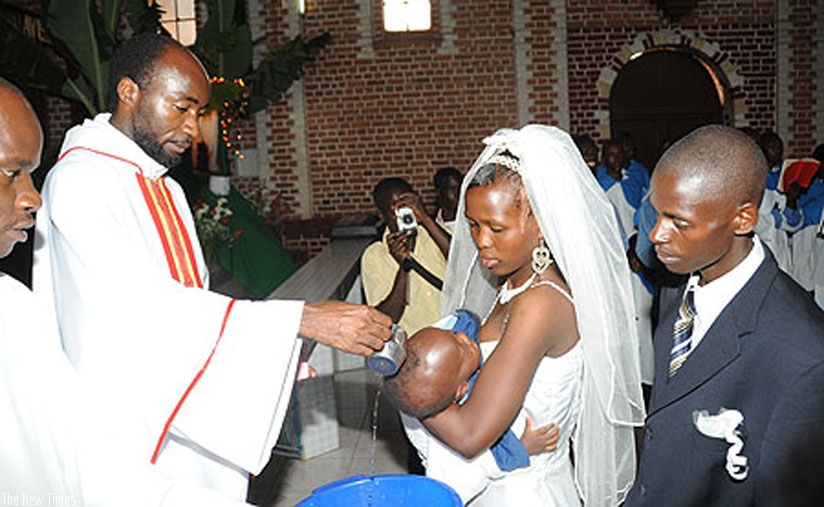Editor, RE: “Christian names are a creation of colonialism” (The New Times, August 16). As Ggwanga Mujje rightly noted, a name like his has real meaning for an African. For a Muganda, it evokes a call for their nation to come together; to assembly for a collective effort.


Editor,
RE: "Christian names are a creation of colonialism” (The New Times, August 16). As Ggwanga Mujje rightly noted, a name like his has real meaning for an African. For a Muganda, it evokes a call for their nation to come together; to assembly for a collective effort.
Shakespeare was definitely wrong, a name, like a word, is pregnant with meaning. Recognition of the importance of names and the language we choose to use among ourselves is the reason such iconic African writers as Boubacar Boris Diop and Ngugi wa Thiongo (notice, no longer James Ngugi) have chosen to change from writing in the coloniser’s language to their own. These are not mere symbolism, but powerful statements that recognise the role of linguistic dominance in overall dominance of one culture over another.
Thus Gatete is absolutely right to decide to replace his foreign name with that from not only his own vulture, but in fact directly from both sides of his family. That name means something that Thierry Kevin can never mean to a Gatete, a Mwene Kalinda, Rudatsimburwa or Ggwanga Mujje.
For, remember, as George Orwell is said to have stated, the most effective way to destroy a people is to deny and obliterate their own understanding of their own history. If you take away the names of a people, you deform their personal history and thus their culture; the glue that holds their society together. You deprive them of the continuation of the skein of their shared history and the rich body of traditions that guide the lives of people with a shared past which provides them with meaning and a sense of a shared overarching purpose.
As Banyarwanda recognised long ago, "Kiliziya yakuye kirazira”, with the tragedy we all know.
History, as they say, is a cultural memory. The loss of knowledge of that culture and knowledge—a goal sought by all foreign powers bent on dominating other peoples—destroys a people’s collective sense of community and a shared identity, casting the members of the previous community adrift into the present without any meaningful reference points from the past.
I, for one, fully salute Gatete Ruhumuriza Nyiringabo for his recognition of the role of Thierry Kevin in his continued mental enslavement. And Rugira’s excellent comment couldn’t have been timed as well as it has been: Just days after Howard Gayle—the first black man to play in England’s top flight football league—refused to accept the award of an MBE which he saw as nothing more than a representation of British oppression of his people.
In subsequent interviews, he noted that his own name was given to his forefathers by their slaving owner and thus all the name evokes for him is the oppression of his people.
And so we go back to the question, what is in a name? A lot of things, indeed!
And, in conclusion, let me invite readers to the current serialisation of our history (on Twitter) by @Urumenesha, specifically the parts relating to how the colonisers and the Catholic Church attempted to transform ambitious "les indigènes” into "les évolués” by turning them against everything in their culture into half-baked European wannabes as the acme of being civilisation.
If you can come to terms with those attempts at totally destroying your culture in order to be accepted as worth to be considered a semblance of a human being, you are welcome to remaining John, Paul, Joseph, Emmanuel, etc.
Mwene Kalinda


